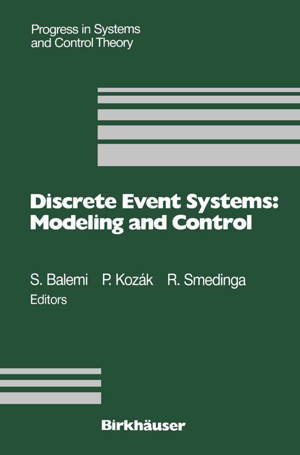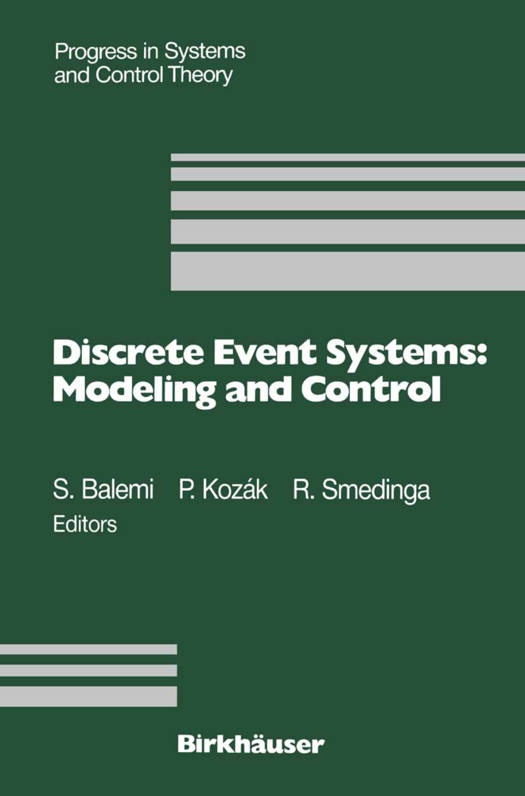
- Afhalen na 1 uur in een winkel met voorraad
- Gratis thuislevering in België vanaf € 30
- Ruim aanbod met 7 miljoen producten
- Afhalen na 1 uur in een winkel met voorraad
- Gratis thuislevering in België vanaf € 30
- Ruim aanbod met 7 miljoen producten
Discrete Event Systems: Modeling and Control
Proceedings of a Joint Workshop Held in Prague, August 1992
€ 95,04
+ 190 punten
Omschrijving
Research of discrete event systems is strongly motivated by applications in flex- ible manufacturing, in traffic control and in concurrent and real-time software verification and design, just to mention a few important areas. Discrete event system theory is a promising and dynamically developing area of both control theory and computer science. Discrete event systems are systems with non-numerically-valued states, inputs, and outputs. The approaches to the modelling and control of these systems can be roughly divided into two groups. The first group is concerned with the automatic design of controllers from formal specifications of logical requirements. This re- search owes much to the pioneering work of P.J. Ramadge and W.M. Wonham at the beginning of the eighties. The second group deals with the analysis and op- timization of system throughput, waiting time, and other performance measures for discrete event systems. The present book contains selected papers presented at the Joint Workshop on Discrete Event Systems (WODES'92) held in Prague, Czechoslovakia, on Au- gust 26-28, 1992 and organized by the Institute of Information Theory and Au- tomation of the Czechoslovak Academy of Sciences, Prague, Czechoslovakia, by the Automatic Control Laboratory of the Swiss Federal Institute of Technology (ETH), Zurich, Switzerland, and by the Department of Computing Science of the University of Groningen, Groningen, the Netherlands.
Specificaties
Betrokkenen
- Uitgeverij:
Inhoud
- Aantal bladzijden:
- 232
- Taal:
- Engels
- Reeks:
- Reeksnummer:
- nr. 13
Eigenschappen
- Productcode (EAN):
- 9783034899161
- Verschijningsdatum:
- 27/09/2011
- Uitvoering:
- Paperback
- Formaat:
- Trade paperback (VS)
- Afmetingen:
- 156 mm x 234 mm
- Gewicht:
- 344 g

Alleen bij Standaard Boekhandel
+ 190 punten op je klantenkaart van Standaard Boekhandel
Beoordelingen
We publiceren alleen reviews die voldoen aan de voorwaarden voor reviews. Bekijk onze voorwaarden voor reviews.







